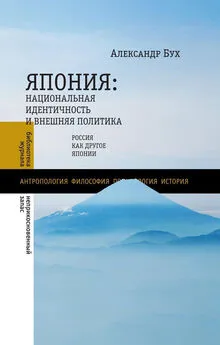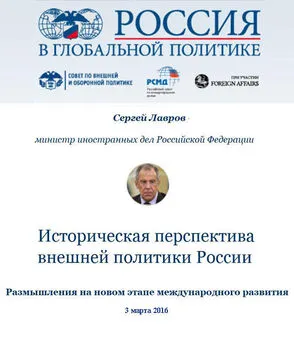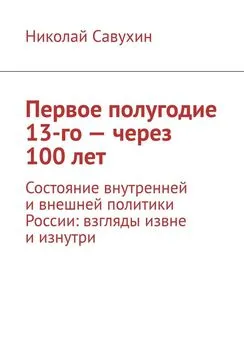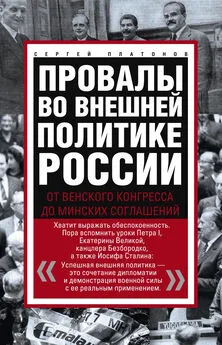Александр Бух - Япония. Национальная идентичность и внешняя политика. Россия как Другое Японии
- Название:Япония. Национальная идентичность и внешняя политика. Россия как Другое Японии
- Автор:
- Жанр:
- Издательство:Array Литагент «НЛО»
- Год:2014
- Город:Москва
- ISBN:978-5-4448-0333-2
- Рейтинг:
- Избранное:Добавить в избранное
-
Отзывы:
-
Ваша оценка:
Александр Бух - Япония. Национальная идентичность и внешняя политика. Россия как Другое Японии краткое содержание
Исследование не ограничивается частными вопросами русско-японских отношений, поскольку тематизация отношений между национальной идентичностью и внешней политикой требует критического анализа основ современной теории международных отношений. Таким образом, книга адресована не только специалистам по вопросам русско-японских отношений, но и широкому кругу ученых в области международных отношений.
Александр Бух – доцент Высшей школы гуманитарных и социальных наук при университете Цукуба (Япония). Выпускник Токийского университета (магистерская степень) и Лондонской школы экономики (докторская степень в области международных отношений).
Япония. Национальная идентичность и внешняя политика. Россия как Другое Японии - читать онлайн бесплатно полную версию (весь текст целиком)
Интервал:
Закладка:
Meyer, P. F. (1993) Moscow’s Relations with Tokyo: Domestic Obstacles to a Territorial Agreement. Asian Survey, 33, 953–967.
Milliken, J. (1999) Intervention and Identity: Reconstructing the West in Korea. IN WELDES, J., LAFFEY, M., GUSTERSON, H. ą DUVALL, R. (Eds) Cultures of Insecurity. Minneapolis, University of Minnesota Press.
Miyashita, A. (2007) Where do norms come from? Foundations of Japan’s postwar pacifism. International Relations of the Asia-Pacific, 7, 99–120.
Miyoshi, O. (1985) The World in Transition and Japan-Soviet Relations. Japan-Soviet Relations in Changing Global Context. Tokyo, Hoppōrōdo mondai taisaku kyōkai.
Mochizuki, M. (1995) Japan: Domestic Change and Foreign Policy. RAND Corporation.
Moltz, J. (2001) Japanese Assistance to the Russian Nuclear Complex. Monterey, Center for Nonprolifiration Studies, Monterey Institute of International Studies.
Morley, J. (1962) Japan’s Image of the Soviet Union 1952–61. Pacific Affairs, 35, 51–58.
Morris-Suzuki, T. (1998) Re-inventing Japan, London, M.E. Sharpe.
Nakagawa T. (1981) Why the Northern Territories Belong to Japan. Japan Echo, 8(3), 78–90.
Nakano, J. (2005) Japan’s Security and the Russian Far East. IN IWASHITA, A. (Ed.) Siberia and the Russian Far East in the 21st Century. Sapporo, Slavic Research Center.
Nakao, H. (2004) The Legacy of Shiba Ryotaro. IN STARRS, R. (Ed.) Japanese Cultural Nationalism. Folkestone, Global Oriental.
Nandy, A. (1988) The Intimate Enemy, Delhi, Oxford University Press.
Neumann, I. (1996) Self and Other in International Relations. European Journal of International Relations, 2, 139–174.
– (1998) Uses of the Other: «The East» in European Identity Formation , University of Minnesota Press.
Nishi, T. (2006) Japanese Antimilitarism: Effective, Irrelevant, or Counterproductive? Annual meeting of the The Midwest Political Science Association. Palmer House Hilton, Chicago, Illinois.
Ogawa, K. (1987) Economic Relations with Japan. IN SWEARINGEN, R. (Ed.) Siberia and the Soviet Far East. Stanford, Hoover Institution Press.
Oguma, E. (2002) A Genealogy of ‘Japanese’ Self-images, Melbourne, Trans Pacific Press.
– (2007) The postwar intellectuals’ view of «Asia». IN KOSCHMANN, J. V. ą SAALER, S. (Eds) Pan-Asianism in Modern Japanese History. London, Routledge.
Otte, M. ą Grimes, W. (1998) Germany and Japan: Civilian Power, Traditional Power or Institutional Constraints.
Ozawa, I. (1994) Blueprint for New Japan, Tokyo, Kodansha International.
Ozkirimili, U. (2005) Contemporary Debates on Nationalism, New York, Palgrave Macmillan.
Pandey, R. (1999) Traditions of War Literature in Medieval Japan IN WELLS, D. ą WILSON, S. (Eds.) The Russo-Japanese War in Cultural Perspective, 1904–05. New York, Palgrave Macmillan.
Panov, A. (2007) Rossiya i Yaponia (Russia and Japan), Moscow, Izvestiya. In Russian.
Pyle, K. (1987) In Pursuit of a Grand Design: Nakasone Betwixt the Past and the Future. Journal of Japanese Studies, 13, 243–270.
– (1992) The Japanese question: power and purpose in a new era, Washngton D.C, American Enterprise Institute.
Rangsimaporn, P. (2006) Interpretations of Eurasianism: Justifying Russia’s role in East Asia. Europe-Asia Studies, 58, 371–389.
Ravina, M. (2005) State-Making in Global Context: Japan in a World of Nation-Sates. IN FOGEL, J. (Ed.) The Teleology of the Modern Nation-State: Japan and China. Philadelphia, University of Pennsylvania Press.
Rozman, G. (1988) Japan’s Soviet-Watchers in the First Five Years of the Gorbachev Era: The Search for a Worldview for the Japanese Superpower. The Pacific Review, 1, 412–428.
– (1992) Japan’s response to the Gorbachev era, 1985–1991: a rising superpower, Princeton, N.J., Princeton University Press.
Rumelili, B. (2004) Constructing identity and relating to difference: understanding the EU’s mode of differentiation. Review of International Studies, 30, 27–47.
Saaler, S. (2005) Politics, Memory and Public Opinion, Munich, Iudicium.
Said, E. (1978) Orientalism, New York, Vintage Books.
Sakai, N. (1989) Modernity and Its Critique. IN HAROOTUNIAN, H. D. & MIYOSHI, M. (Eds.) Postmodernism and Japan. London, Duke University Press.
Sakanaka, T. (1980) Military Threats and Japan’s Defense Capability. Asian Survey-Japanese Perspectives on International Developments, 20, 763–775.
Sarkisov, K. (2000) Russo-Japanese Relations after Yeltsin’s Reelection in 1996. IN ROZMAN, G. (Ed.) Japan and Russia: The Tortuous Path to Normalization, 1949–1999. New York, St. Martin’s Press, 215–228.
Shiba, R. (1999) O Rossii (About Russia ), Moscow, MIK. In Russian.
Shimazu, N. (2005) «Love Thy Enemy: Japanese Perceptions of Russia. IN STEINBERG, J. W. (Ed.) The Russo-Japanese War in Global Perspective: World War Zero. Leiden, Brill, 365–384.
Shimotomai, N. (1995) Japan’s Russia Policy and the October 1993 Summit. IN GOODBY, J. E., IVANOV, V. I. ą SHIMOTOMAI, N. (Eds.) «Northern Territories» and Beyond. London, Praeger, 119–126.
– (2006) Cold War in East Asia and the «Northern Territories Problem». IN HARA, K. ą JUKES, G. (Eds) New Initiatives for Solving the Northern Territories Issues between Japan and Russia: An Inspiration from the Aland Islands , Mariehamn/Aland, CSIS, 73–86. www.csis.org/pacfor/issues/
Siddle, R. (1996) Race, Resistance and the Ainu of Japan, London, Routledge.
– (2002) An Epoch Making Event? The 1997 Ainu Cultural Promotion Act and its Impact. Japan Forum, 14, 405–423.
Sil, R. ą Doherty E. (Ed.) (2000) Beyond Boundaries? Disciplines, Paradigms, and Theoretical Integration in International Studies, Albany, New York, State University of New York Press.
Singh, B. (1999) The Challenge of Positive Engagement. IN WATANABE, K. (Ed.) Engaging Russia in Asia Pacific. Tokyo, Japan Center for International Exchange, 95–111.
Smith, R. (1992) The Cultural Context of the Japanese Political Economy. IN KUMON. S. ą ROSOVSKY H. (Eds) The Political Economy of Japan: Cultural and Social Dynamics. Stanford, Stanford University Press, 13–31.
Snow, H. (1910) In Forbidden Seas: Recollections of sea-otter hunting in the Kurils, London, Edward Arnold.
Soeya, Y. (1998) Japan: Normative Constraints Versus Structural Imperatives. IN ALAGAPPA, M. (Ed.) Asian Security Practice. Stanford, Stanford University Press.
Stockwin, J. (1968) The Japanese Socialist Party and Neutralism, Melbourne, Melbourne University Press.
Suganami, H. (1984) Japan’s Entry into International Society. IN BULL, H. ą WATSON, A. (Eds) The Expansion of the International Society. Oxford, Clarendon Press, 185–200.
Suh, J., Katzenstein, P. ą Carlson, A. (Eds) (2004) Rethinking Security in East Asia, Stanford, Stanford University Press.
Suzuki, S. (2005) Japan’s Socialization into Janus-Faced European International Society European Journal of International Relations, 11, 127–164.
Tachibana, R. (1998) Narrative as Counter-Memory, Albany, State University of New York Press.
Takahashi, S. (1908) International Law applied to the Russo-Japanese War, London, Steven and Sons.
Takakura, S. ą Harrison, J. (1960) The Ainu of Northern Japan. Transactions of the American Philosophical Society, 50(4), 1–88.
Takemae, E. (2002) Inside GHQ: The Allied Occupation of Japan and Its Legacy, London, Continuum.
Taliaferro, J. W. (2000–2001) Security Seeking under Anarchy: Defensive Realism Revisited. International Security, 25(3), 128–161.
Tamamoto, M. (1993) The Japan that Wants to be Liked. IN BLACKBURN, P. ą UNGER, D. (Eds) Japan’s Emerging Global Role. London, Lynne Reinner.
Tanaka, A. (1994) Japan’s Security Policy in the 1990s. IN YOICHI, F. (Ed.) Japan’s International Agenda. New York, New York Univ Press.
Tanaka, S. (1993) Japan’s Orient, London, Berkley University Press.
– (2002) Objectivism and the Eradication of Critique in Japanese History. IN MIYOSHI, M. ą HAROOTUNIAN, H. D. (Eds) Learning Places. Durham, Duke University Press, 80–102.
Thayer, J. (1951) Japanese Opinion on the Far-Eastern Conflict. The Public Opinion Quarterly, 15(1), 76–88.
Todorov, T. (1984) The conquest of America: the question of the other, New York, Harper ą Row.
Togo, K. (2007) Japan’s Strategic Thinking in the Second Half of the 1990s. IN ROZMAN, G., TOGO, K. ą FERGUSON, J. P. (Eds) Japanese Strategic Thinking toward Asia. New York, Palgrave Macmilan, 79–108.
Toichi, T. (2004) Japanese Energy Policy and Regional Cooperation in Northeast Asia. IEEJ.eneken.ieej.or.jp/en/data/pdf/259.pdf accessed on 23 March 2008.
Trenin, D. (2007) Getting Russia Right, Washington DC, Carnegie Endowment for International Peace.
Umehara, T. (1985) Japanese Culture and Ainu Culture. IN KENNY, D. (Ed.) Nihon bunka o saguru. Tokyo, Kodansha.
Valliant, R. (1999) Main Events of a New Era. IN IVANOV, V.I. & SMITH, K.S. (Eds) Japan and Russia in Northeast Asia. Westport, Praeger, 154–170.
Vincent, R.J. (1984) Racial Equality. IN BULL, H. ą WATSON, A. (Eds) The Expansion of International Society. New York, Oxford University Press, 239–254.
Vogel, E. (1979) Japan As Number One: Lessons for America, Massachusets, Harvard Univ Press.
– (1986) Pax Nipponica? Foreign Affairs, 64(4), 752–767.
Vogel, S. (Ed.) (2002) US-Japan Relations in a Changing World, Washington DC, Brookings Institution Press.
Wakaizumi, K. (2002) The Best Course Available: A Personal Account of the Secret U.S.-Japan Okinawa Reversion Negotiations, Honolulu, University of Hawaii Press.
Walker, R. B. J. (1984) East Wind, West Wind: Civilizations, Hegemonies, and World Orders. IN WALKER, R. B. J. (Ed.) Culture, Ideology, and World Order. London, Westview Press.
Watanabe, A. (1978) Foreign Policy Making Japanese Style. International Affairs, 54(1), 75–78.
Watanabe, K. (1999) Engaging Russia-A Japanese Perspective. IN WATANABE, K. (Ed.) Engaging Russia in Asia Pacific. Tokyo, Japan Center for International Exchange.
– (1999a) Introduction. IN WATANABE, K. (Ed.) Engaging Russia in Asia Pacific. Tokyo, Japan Center for International Exchange, 11–22.
Watson, R. (1874) Notes of a Journey on the island of Yezo in 1873; And the Progress of Geography in Japan. Journal of the Royal Geographical Society of London, 44, 132–145.
Wendt, A. (1992) Anarchy Is What States Make of It. International Organisation, 46, 391–425.
– (1994) Collective Identity Formation and the International State. American Political Science Review, 88, 384–396.
– (1996) Identity and Structural Change in International Politics. IN LAPID, Y. & KRATOCHWIL, F. (Eds) The Return of Culture and Identity in IR Theory. Boulder, Colorado, Lynne Rienner.
– (1999) Social theory of international politics, Cambridge; New York, Cambridge University Press.
White, J.W., Umegaki, M. & Havens, T.R.H. (Eds) (1990) The Ambivalence of Nationalism, London, University Press of America.
Читать дальшеИнтервал:
Закладка:








![Игорь Иванов - Внешняя политика России в эпоху глобализации [Статьи и выступления]](/books/1090951/igor-ivanov-vneshnyaya-politika-rossii-v-epohu-globa.webp)

